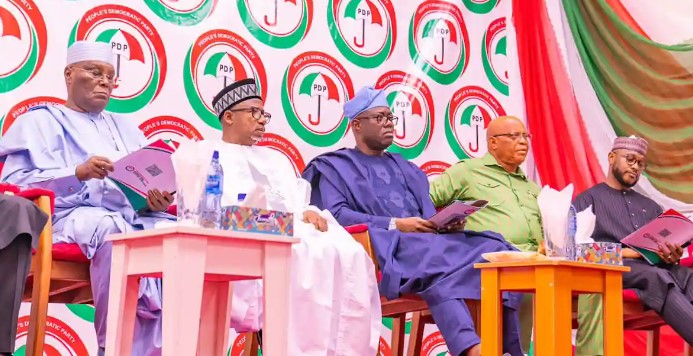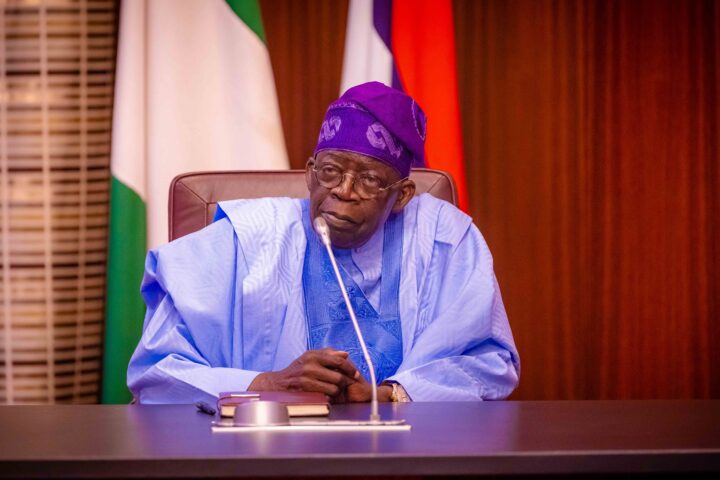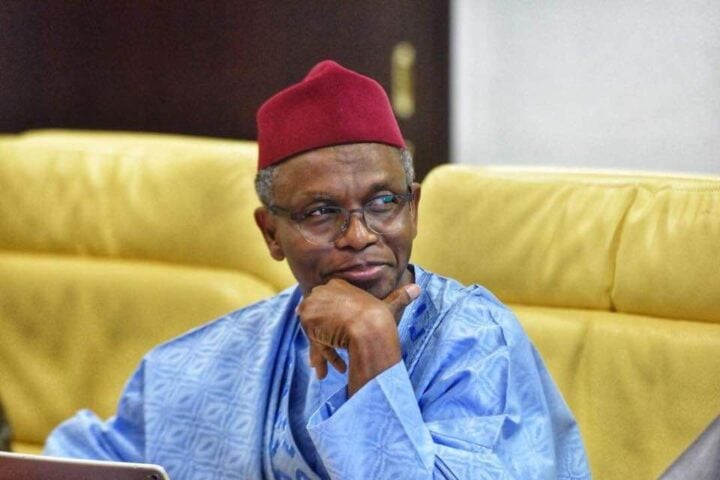What is likely to hit you at first encounter with Fred Onyeoziri is his personable nature. Yes, he was such a pleasant person – full of life; charming; calm; and always unassuming.
He even gets more amiable when he speaks. What comes out was always a disarming logic and brilliance too hot to be concealed, not even by an unparallel humility and a quiet mien that often ensconced his innate being, the essential Fred Onyeoziri.
A master debater in his secondary school days, he initially wanted to study English but got to Ibadan and changed his mind. He ended up enrolling to study political science at the University of Ibadan. And what an astute political scientist he ended up becoming after winning the faculty prize as the best-graduating student of the Faculty of Social Sciences.
Yes, Professor Fred Onyeoziri was not your cream chocolate intellectual; he was a solid one. He was not just a political scientist, he was a political scientist of the critical tradition. Of course, you cannot study under the great David Easton at the Chicago School and turn out ordinary.
Advertisement
As a scholar, Onyeoziri was excellent, probing and always asking question after question, which an uninitiated may find somewhat offensive and discomforting. But that was his methodological way of searching for the truth and unleashing excellence. He always said that if he attends a lecture or seminar and refused to ask a question, he probably did not want to embarrass someone, or simply wanted to be quiet. According to him, there is no perfect presentation anywhere that cannot be questioned either because of its premise or conclusion.
Moreover, he was original in his thinking and marshaled his points with profound brilliance and clarity. Yet Onyeoziri never claimed to know-it-all or pretended to any epistemic superiority especially when dealing with people of lesser education. Rather, he would make you comfortable by coming down to your own level to ensure you enjoy the debate or argument. Of course, that is the mark of a great teacher.
As a teacher, Professor Fred Onyeoziri was well respected not only at the department of Political Science, University of Ibadan, where he taught and trained generations of students, many of whom are now accomplished teachers and administrators in their own rights. Indeed, he was respected and even adored for his brilliance, the quality of his work, and the promotion of the university with his journalistic writings.
Advertisement
Professor Onyeoziri was a very strict teacher that never compromised standards no matter who was involved. Many of his students used to grumble about what they called his stinginess with marks. But he never believed he was stingy in his grading of scripts. Rather he argued that any student who worked hard enough would pass any of his courses, no matter how abstract they may be. And as a disciplined teacher, Onyeoziri often argued that the best way to compensate a hard-working student for his or her efforts and preserve the quality and standard of education was to ensure that only those who deserve to pass were allowed to pass. Passing his course, of course, began with satisfying the mandatory percentage attendance in the course. Any student who did not attend Professor Onyeoziri’s classes regularly by at least meeting the minimum prescribed number of attendance automatically failed because he/she would never be allowed to write the exams. That was how strict he was as a teacher!
Even then, Onyeoziri was very open and accessible to his students. He believed that he was a lecturer first and foremost for students. He was always ready to help his student in any possible way he could. Knowing the dearth of quality books on campus, he readily lent his books to his students and was ever ready to explain sticky points to them. And he did all these without any airs. Because of his American background, Professor Onyeoziri unlike some other lecturers was very open to criticism and would surrender to superior argument, even if it was coming from one of his students.
Without a doubt, Onyeoziri was adored at the University of Ibadan by both students and staff of the institution. In the 80s and 90s, wherever he passed on campus, you could hear someone whispering and pointing in his direction, “That is Fred Onyeoziri, the one that writes those things in the Guardian”. That was the kind of aura he exuded. Yes, Fred Onyeoziri brought honour and fame to the University of Ibadan with his Friday weekly column in The Guardian in the 80s and 90s during the military era. His writings were not only so critical of the military governments of the era that many people feared for his safety but also reflected the quality of intellect at the University of Ibadan, which made his colleagues and even the university administrators proud.
At a time, he was regarded as the strongest voice against the transition programme of General Ibrahim Babangida (which he correctly predicted to be leading to nowhere) in the media but surprisingly, he was never arrested for one day. Onyeoziri reasoned that the military left him alone probably because they discovered he was honest with his criticisms since he never belonged to any political party or rights group except ASUU. He was simply a harmless lecturer who happened to hold conversations with his imaginary friend from Mars, Professor Zuko. Just to tell how Fred Onyeoziri’s writings were rated, his column led every Friday in The Guardian with the great polyglot, Reuben Abati, following!
Advertisement
Interestingly, one of the courses he taught at Ibadan, which defined his essence as a patriot and which helped to mold the political orientations of generations was The Citizen and the State. In teaching this course, Onyeoziri always argued that while citizens have rights and owed their country an obligation, that obligation was never elastic but has limits. Not only did Professor Onyeoziri leave behind a well-researched and methodologically-heavy book, The Citizen and the State, he also delivered an unforgettable Faculty Lecture in the early 90s in the heat of activism against Babangida’s military regime titled, “The Limits of Political Obligation,” wherein he warned of the grave dangers inherent in citizens giving unquestioned obligations to the state.
In terms of his media engagements, Professor Onyeoziri was not just an iconic columnist, he was also a media executive. He was a member of the editorial board of The Guardian Newspapers and sustained one of the most widely read columns in the country for many years. He was the chairman of the editorial board of The Post Express Newspapers and much later, the managing director/chief executive officer of the papers.
At The Post Express, Professor Onyeoziri was noted for his unwavering belief in justice and fairness. He hired staff without knowing where they hailed from as long as they were qualified for their positions. And he defended the rights and entitlements of his staff and was always a father figure to the employees, even to the detriment of his own personal finances. And whenever there were conflicts between the publisher of the newspaper and the journalists, Onyeoziri always stood with the staff to the chagrin of the publisher. That was the essential Fred Onyeoziri!
Although an anti-governmentalist, Fred Onyeoziri was also highly connected with the people in government who admired his intellect and courted his friendship. While he was open to associating with respectable government people and politicians of like minds, he always insisted that such relationships must be guided and rooted in his uncompromising principles. It was therefore not unusual for him to receive requests from top government people and politicians to help them review their policy papers or help them craft one. For example, during the fight against Obasanjo’s third-term bid, Onyeoziri right from his office in the ivory towers in Ibadan played a crucial role in providing theoretical and intellectual armament that helped in defeating the tenure elongation bill which he considered “immoral”.
Advertisement
It was therefore fitting that Professor Onyeoziri did not limit his excellent knowledge of politics to the classrooms and newspaper pages. He was tapped by the late Ojo Maduekwe to head the research directorate of the Peoples Democratic Party (PDP). In that position, he tried to bring some orderliness, democratic principles, and intellectual perspectives to the operational activities of the ruling party. And it did not take time for Professor Onyeoziri’s brilliance and honesty to be noticed and appreciated by the topmost echelon at Wadata House. He was to be appointed the secretary of the PDP presidential screening Committee for the 2007 presidential election. As usual, Professor Onyeoziri executed this function with great aplomb and missionary zeal.
So excited about the way he administered the screening, the late Umaru Musa Yar’Adua sent out an invitation to Professor Onyeoziri later in the evening after his screening. Guess what? Onyeoziri turned down the president-in-waiting saying it was unethical to meet an aspirant they had just screened before the official release of the results. And this was happening at a time politicians were ready to give an arm and a leg to meet Yar’Adua. Onyeoziri was always ready to sacrifice his own personal gains and opportunities whenever they clash with the principles of honesty and integrity. The essential Fred Onyeoziri.
Advertisement
Professor Onyeoziri was to be appointed later as the political adviser to the national chairman of the PDP, the now-late Chief Vincent Eze Ogbulafor. As an adviser to the national chairman of the ruling party, Professor Onyeoziri figured that he could use his new position to affect public policies in the interest of the ordinary people in the country by nudging the party into a path of obedience to the rule of law and democratic ideals. The suspicious side-eyes that politicians in the country normally throw at intellectuals did not help Professor Onyeoziri’s revolutionary drive at the PDP. It did not take long before the entire NWC of the PDP began to see the political adviser as an obstacle to their anti-democratic activities in the party because of his insistence that democracy is a rule-governed system among politicians who only see politics as the end that justifies the means. Professor Onyeoziri in his candour never failed to let the powers that be at PDP during that time know the truth; that the party was living on borrowed time. He predicted, and rightly so, that with the way the PDP was behaving, any day a formidable opposition party emerges in the country, PDP will lose power irretrievably. And it came to pass!
Sometimes it is difficult not to think that the word brilliance was not specifically created to describe Professor Fred Onyeoziri because it is hard to meet anyone with better clarity of thought and more original thinking.
Advertisement
But beyond all these, Professor Onyeoziri was an amazing person.
He loved even those that hated him; gave without waiting to receive back. He exhibited calmness in the face of adversity and never had any space for vengeance in his beautiful heart. A kind soul, he was always ready to help in any way he could, and valued friendship greatly. In fact, he considered no sacrifice too much for a friend.
Advertisement
Above all things, he loved God so dearly.
Born Frederick Eze Chikezie Onyeoziri on July 21, 1941, into the family of late Abraham Chikezie and late Mrs Racheal Iheomadinihu Onyeoziri of Umuokehi-Okpuala, Ohuhu in today’s Umuahia north local government Council, Abia State, Nigeria, Fred Onyeoziri died in Abuja on February 28, 2023.
The remains of a good man will be interred on June 10, 2023, at his Ohuhu hometown, Umuahia, Abia State.
Adieu, my teacher, boss, mentor, and confidant.
Ugboajah, editor-in-chief of Ikengaonline, was a student and later SA to Professor Fred Onyeoziri at the PDP
Views expressed by contributors are strictly personal and not of TheCable.
Add a comment







